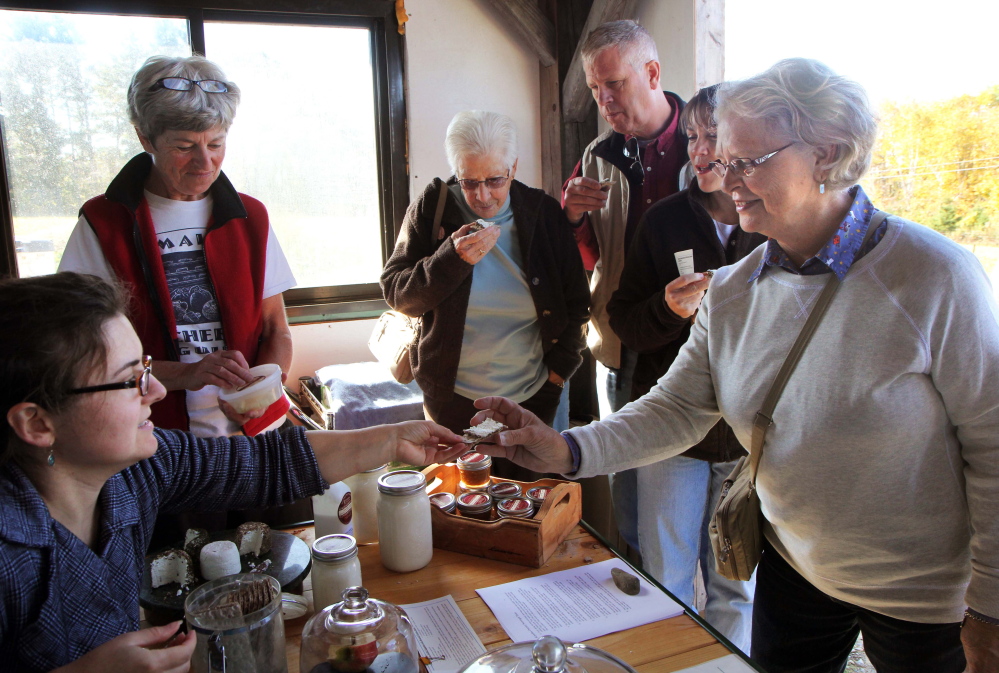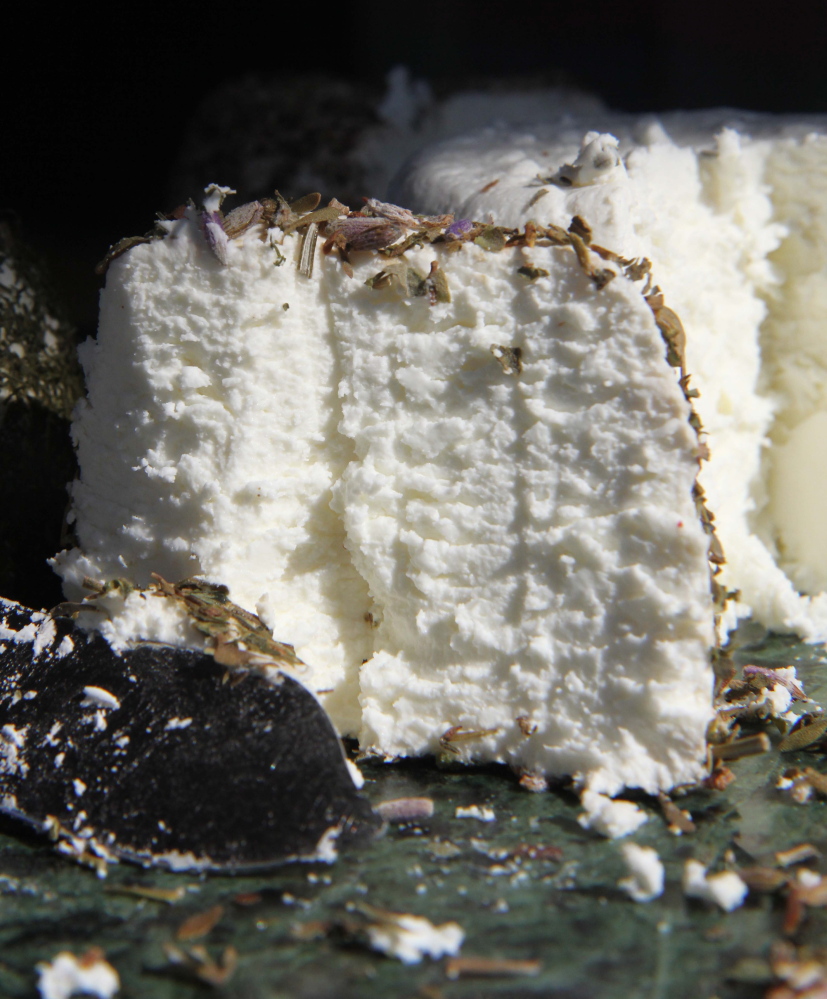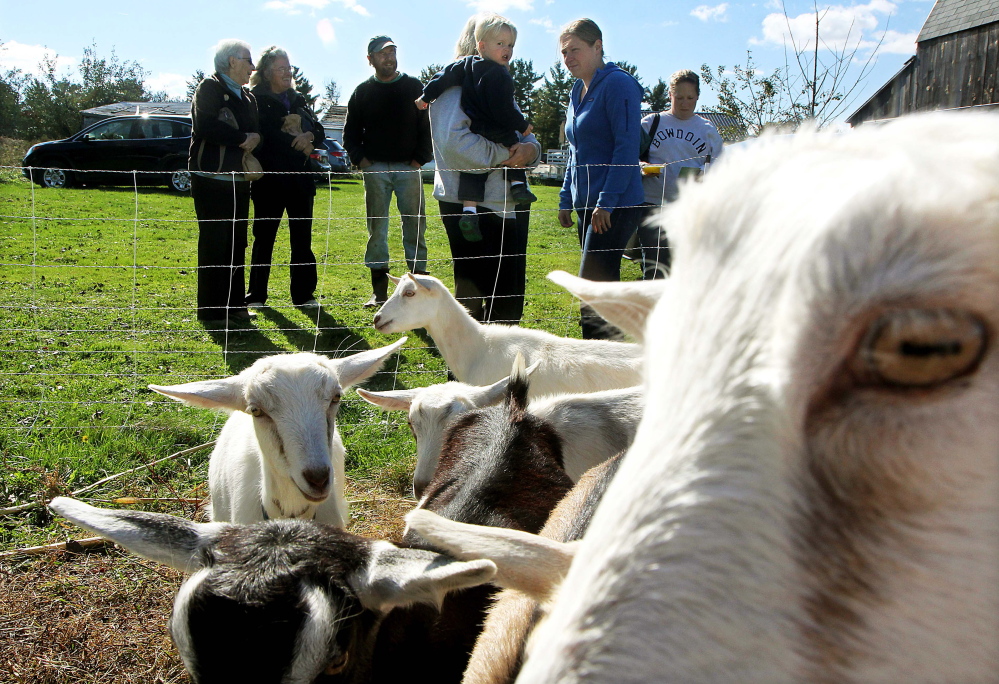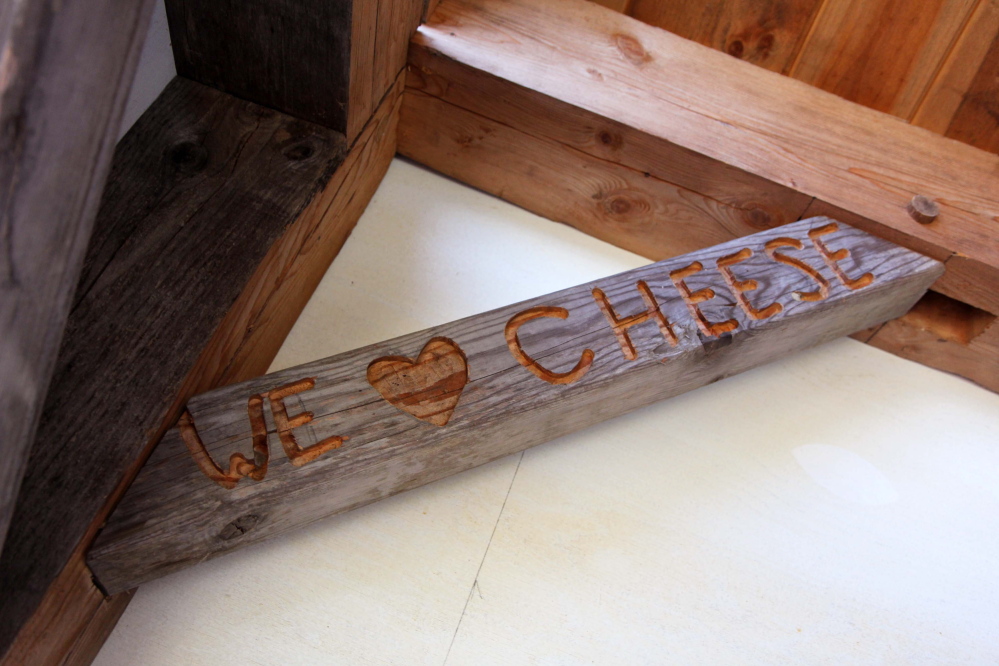SIDNEY — April Snow, having retired at the age of 7, doesn’t contribute much milk for cheese-making these days at Kennebec Cheesery on the Koons Farm.
But the old goat, one of farmers Jean and Peter Koons’ original dairy goats that helped start their cheese-making operation in 2007, is still an important presence on the farm.
Sunday the Alpine goat spent Maine Open Creamery Day as the only adult goat keeping an eye on 16 6-month-old youngsters in their own pen away from the rest of the tribe of approximately 50 goats.
“She instills a certain amount of order,” Peter Koons said of April Snow, who sat back away from the fence as many of the younger goats crowded near children and others Sunday, both groups of kids checking each other out. “She doesn’t put up with much from any of them.”
The younger goats, and even many of the adults kept in a separate pen, seemed as interested in seeing their human visitors as the humans did them. Koons noted they don’t hand-feed the goats, so when they swarm around people it’s not likely that they’re looking for food; they’re just curious and social creatures.
“They’re very friendly,” Peter Koons said. “They’re also very curious. They may nibble at your clothing a bit.”
In a nearby commercial kitchen in a medium-sized post-and-beam building built with wood cut from the Pond Road farm property, Jean Koons, sometimes with help from her daughter, Linnea Koons Morrison, takes the milk from the twice-daily goat milking sessions and turns it into a variety of cheeses and yogurts, including their classic smooth and creamy chevre in either molded rounds or in a bath of olive oil, as well as feta, ricotta, and aged Kennebec highland Caerphilly.
She also makes and sells woodside alpine, a cow’s milk cheese made from milk from fellow Sidney farmer Wilson Sanborn’s herd of 30 organic Jersey cows.
They provided samples to visitors Sunday and also made some sales for just over $5 for most of the cheeses.
Early Sunday afternoon, Trudy Ellis, of Chelsea, raved about the chevre: “It’s very good, very smooth and creamy.”
She purchased some chevre and two bottles of cajeta, a goat milk caramel, after trying a sample on a slice of apple.
Jean Koons said they tried the cajeta at their daughter’s suggestion and said they like to experiment with other flavors, too.
It takes about a day to make a batch of chevre and two or three days to make the aged cheeses.
The milking takes place generally at 6 a.m. and 6 p.m. each day in the milking room, where up to eight goats at a time can be milked.
Peter Koons said every day means just that, every day. But while days off are rare on the farm, he said they have some workers who can take over the milking for them so they can take a vacation occasionally.
A batch of 20 gallons of goat milk makes about 17 pounds of cheese, Jean Koons said. She noted the yield is higher in the fall than it is in the spring. She said consistency of product can be a challenge for small artisanal cheese makers, because so many different things, from the time of year to the environment, can impact how their products turn out.
She said their products pretty much start with the same milk, and then they follow different recipes and use different bacterias to make the varieties.
“There is a science to it, but it’s also an art,” she said of cheese-making.
Send questions/comments to the editors.







Success. Please wait for the page to reload. If the page does not reload within 5 seconds, please refresh the page.
Enter your email and password to access comments.
Hi, to comment on stories you must . This profile is in addition to your subscription and website login.
Already have a commenting profile? .
Invalid username/password.
Please check your email to confirm and complete your registration.
Only subscribers are eligible to post comments. Please subscribe or login first for digital access. Here’s why.
Use the form below to reset your password. When you've submitted your account email, we will send an email with a reset code.